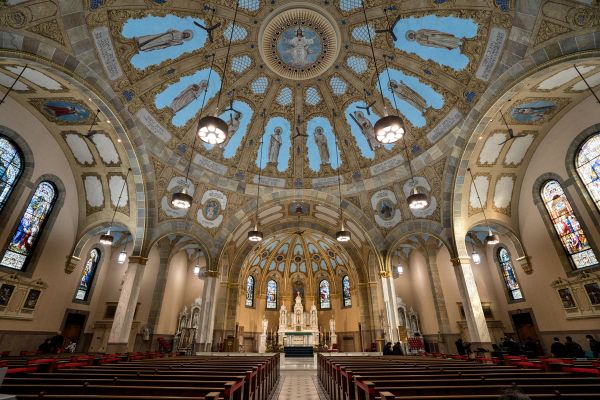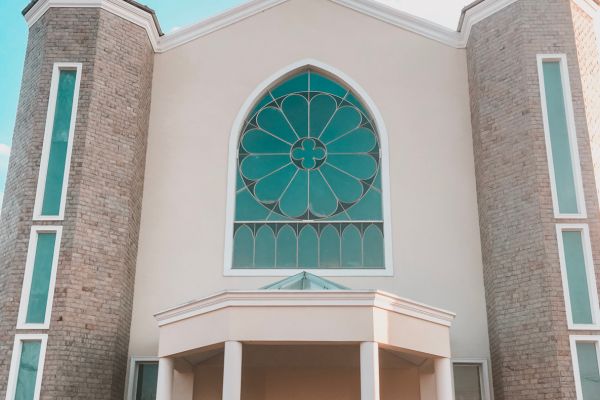Churches, like any other organization, sometimes require financial assistance to achieve their goals. Whether it’s building a new facility, purchasing property, or refinancing existing debt, loans can provide the necessary funds to support these initiatives. However, obtaining a church loan involves meeting specific requirements that lenders typically demand. This article will guide you through the essential requirements for securing a church loan, helping your church prepare and successfully navigate the loan application process.
Types of Church Loans
Before diving into the requirements, it’s essential to understand the different types of loans available to churches. Each type serves a specific purpose and may have unique criteria.
Construction Loans
These loans are intended for building new facilities or renovating existing ones. They typically cover costs associated with construction, including materials, labor, and permits.
Mortgage Loans
Mortgage loans are used to purchase property, whether it’s land for a new church building or an existing structure. These loans usually have long-term repayment plans.
Refinance Loans
If a church already has a loan but is looking for better terms or interest rates, refinancing might be an option. Refinance loans allow churches to replace their existing debt with new loan terms.
Working Capital Loans
Working capital loans are designed to help manage day-to-day operations. They can be used for a variety of expenses, such as salaries, utilities, and other operational costs.
Common Church Loan Requirements
When applying for a church loan, lenders will assess several factors to determine eligibility and terms. Below are the most common requirements churches must meet.
Legal Structure and Status
One of the first things lenders look for is whether the church is a recognized legal entity. In the U.S., this typically means having a 501(c)(3) status, which designates the church as a nonprofit organization. Churches will also need to provide their articles of incorporation and bylaws, which outline the church’s governance structure and operational procedures.
Financial Documentation
Financial stability is a key consideration for lenders. Churches must provide recent financial statements, including an income statement and balance sheet, to demonstrate their financial health. Additionally, lenders will want to see proof of consistent tithes and offerings, as this indicates a reliable source of income. A budget showing how loan payments will be managed is also crucial, as it reassures lenders that the church can meet its financial obligations.
Creditworthiness
Lenders will assess the church’s credit history to determine its creditworthiness. A good credit score increases the chances of loan approval and may result in better loan terms. In some cases, lenders may also consider the credit scores of the church’s leadership, especially if the church’s financial history is limited.
Property Appraisal
If the church is using property as collateral for the loan, an appraisal will be required. The appraisal ensures that the property’s value is sufficient to cover the loan amount. Lenders will compare the appraised value of the property with the loan request to determine the level of risk involved.
Congregation Support
Lenders often require evidence of congregational support for the loan. This could include meeting minutes from church board meetings where the loan was discussed and approved or voting results that show the congregation’s backing. Additionally, churches may conduct pledge drives or fundraising campaigns to demonstrate their ability to manage loan payments.
Leadership Experience
The experience and stability of the church’s leadership team can influence a lender’s decision. A strong track record of managing church projects and finances reassures lenders that the church has the capability to handle the responsibilities of a loan.
Lender Considerations
When seeking a loan, churches must also consider the type of lender they approach, as well as the loan terms and collateral requirements.
Specialized Lenders
Some lenders specialize in church loans and understand the unique needs and challenges that religious organizations face. Working with a lender who has experience with church loans can be advantageous, as they are more likely to offer terms that suit the church’s specific circumstances.
Interest Rates and Terms
Interest rates for church loans can vary based on the church’s financial health, creditworthiness, and the type of loan. Churches should be prepared to compare offers from different lenders to find the best interest rate and terms. Typical loan terms might range from 10 to 30 years, depending on the loan type and amount.
Collateral Requirements
Lenders usually require collateral to secure a loan, which can be in the form of property or other valuable assets owned by the church. It’s important to understand the risks associated with securing a loan with church property, as failure to meet loan obligations could result in the loss of the collateral.
Steps to Apply for a Church Loan
Securing a church loan involves several steps, from preparation to loan disbursement.
Preparation
The first step is to gather all necessary documentation, including financial statements, legal documents, and evidence of congregational support. Churches should also prepare a clear budget showing how they will manage loan payments.
Selecting a Lender
Researching and choosing the right lender is crucial. Churches should consider both traditional banks and specialized lenders, weighing factors like experience with church loans, interest rates, and loan terms.
Application Process
Once a lender is selected, the church can proceed with filling out the loan application. This involves submitting the required documentation and providing detailed information about the church’s financial health and loan purpose.
Loan Approval and Disbursement
After submitting the application, the lender will review the materials and make a decision. If approved, the lender will disburse the funds according to the agreed-upon terms. Churches should be prepared to manage the disbursement responsibly, ensuring the funds are used as planned.
Challenges and Tips
Common Challenges
Churches may face challenges in securing a loan, such as limited financial history or insufficient collateral. It’s important to address these challenges by improving financial documentation, increasing congregational support, or seeking alternative forms of collateral.
Best Practices
To increase the chances of loan approval, churches should present a strong, well-prepared application. Clear communication with lenders, transparency about financial health, and demonstrating leadership stability can all contribute to a successful loan application.
Conclusion
Securing a loan for your church can be a complex process, but understanding the requirements and preparing thoroughly can make it more manageable. By meeting the common requirements, such as having solid financial documentation, demonstrating creditworthiness, and gaining congregational support, your church can increase its chances of obtaining the funds needed to achieve its goals. Whether for construction, property purchase, or refinancing, the right loan can be a valuable tool in helping your church fulfill its mission.
Call to Action
If your church is considering applying for a loan, now is the time to start preparing. Gather your financial documents, assess your creditworthiness, and ensure you have the support of your congregation. Consider consulting with a financial advisor or reaching out to a lender that specializes in church loans to guide you through the process.
References & Further Reading
- Church Loan Requirements: Understanding What Lenders Look For
- Nonprofit Financial Management: A Guide for Churches
- Legal Considerations for Church Loans
This article provides a detailed overview of church loan requirements, offering valuable insights and practical advice for churches seeking financial assistance.






